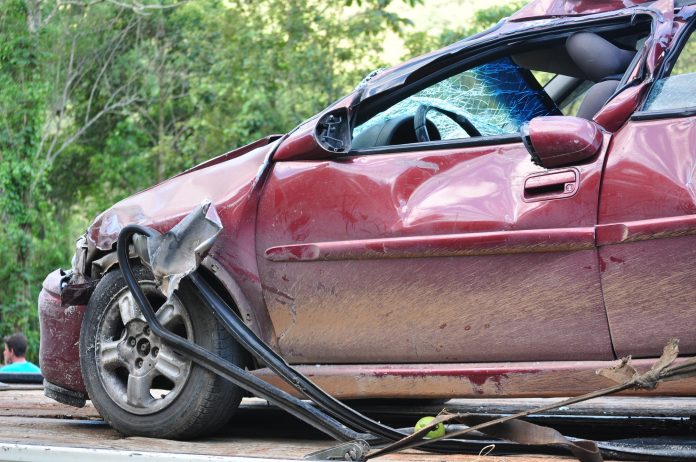When you’re involved in a fatal crash, who do you turn to?
You can’t undo a tragic car accident. The best you can do is bring justice to the situation and comfort to those who were involved.
Knowing the right steps to take after a car crash involving a fatality is tricky, and there are certain actions you should avoid. It’s helpful to read this car accident guide, notified by experts in the field.
Here are the steps you’ll want to take after a fatality accident. Let’s get into it!
1. Contact the Appropriate Authorities
After a loved one is involved in a fatal crash, the first step is to contact the appropriate authorities. You need to do this to file an accident report and begin the process of finding out what happened.
Also, ensure to maintain contact with the investigating officers and cooperate with them for any questions and answers they may need. In some cases, they may dispatch someone to investigate the cause of the accident.
Lastly, contact the local coroner or medical examiner to determine the cause of death and give permission for them to perform an autopsy.
2. Inform Close Friends and Family Members
It is incredibly important to make sure that all key people in the victim’s life are aware of the situation. It is also wise to ensure that those receiving the news are in a private and respectful environment.
This will not take away from the moment and make sure they are distracted. In addition, it is crucial to remain honest and direct when conveying the details to help all parties involved accept what has happened.
This can be done via phone, text, email, or in person. This is hard for most people, but it is the proper course of action.
3. Figure Out Any Outstanding Payments or Legalities
Finally, contact the Social Security Administration and the applicable DMV to address any other duties. Coping with the loss of a loved one is a long and difficult process, but it is important to take care of the necessary legalities in the wake of a fatal crash.
It’s important to rally together with family and friends to figure out any outstanding payments. These things may include:
- Any medical bills
- Funeral costs
- Possible costs associated
It’s also critical to inquire if the deceased has any debt that needs to be paid or a will that needs to be settled. Moreover, be sure to review the state laws concerning inheritance and other legal matters necessary.
Lastly, contact the relevant local government offices to determine what documents need to be filled out to receive any death benefits or other compensation.
4. Start Organizing the Funeral Service and Obituary
Another important step is to gather any death certificates and official documents so the process can be started. Also, it can help to lean on family and friends for help with researching the type of funeral service to have.
This will also assist in how to go about planning the ceremony and thinking of the deceased and his or her wishes. Additionally, contacting a funeral home or crematorium can be helpful to take care of the body according to the family’s desire.
In addition, obituaries can be written by family and friends and published in local papers to announce the passing. There may be additional steps to take, but dealing with these details can be delegated to trusted family members.
Overall, taking time to plan funeral services and an obituary can help bring closure and help family and friends to start the healing process.
5. Collect the Victim’s Belongings From the Crash Site
After a fatal crash involving your loved one, the first thing to do is collect as much of their personal belongings as possible from the crash site. Gather any items that may have been strewn in and around the scene, such as their wallet, phone, backpack, etc.
Place any items in a plastic bag to preserve them for any future legal proceedings and document or photograph the scene if possible. After the collection, make sure that the belongings are kept somewhere that is secure.
Remember, all of these things are essential as they will be needed for the treatment of their last remains.
6. Obtain Copies of the victim’s Medical and Employment Records
Another essential step that you need to take is to obtain copies of the victim’s medical and employment records. This will provide the family with detailed information about the victim’s state of health and employment status at the time of the accident.
Additionally, they can use the medical records to pursue a wrongful death lawsuit and the employment records for filing a worker’s compensation claim. It is important to keep these records well-organized in case of future legal or medical needs.
7. Review Insurance Policies
After a loved one is involved in a fatal crash, be sure to review all of the policies to determine what kind of coverage is available and what requirements must be met for any claims to be made.
Also, check to see if their policy adequately compensates any associated family members in economic hardships. All insurance policies should be reviewed carefully with an attorney to ensure that they meet the policyholder.
8. Contact the Social Security Administration
One of the most important things to do right away is to contact the SSA. They can assist with the processing of survivor benefits, which will help provide financial security for those who have been affected. It can also provide benefits for:
- A surviving spouse
- Minor children
- A dependent parent
Furthermore, it is best to contact the Social Security Administration right away to start the process as quickly as possible to ensure the dependents are taken care of. Finally, beneficiaries should also know the deceased’s SSN to make the paperwork process simpler.
9. Take Time to Seek Emotional Comfort
After experiencing a fatal crash, friends and the victim’s family will likely need time to take in the emotions produced by the tragic event. It is important to recognize that these feelings can manifest in a variety of ways including:
- Shock
- Disbelief
- Fear
- Guilt
- Resentment
- Anger
- Sadness
During these times of deep emotion, it is important to seek out emotional comfort and support from family, friends, and community. Asking for help in times of difficulty is a sign of strength.
Ultimately, connecting with others, whether it be in the form of sharing stories, attending counseling sessions, or just being in the company of familiar faces, is a key component in finding peace of mind and solace.
10. Secure Witnesses Who Are Willing to Testify
When it comes to an unfortunate fatal crash, tracking down secure witnesses who are willing to testify can be a difficult endeavor. These witnesses must be willing to cooperate and be consistent in their details and recollections of the event.
The best way to ensure their trustworthiness is through questioning and gaining consent through acknowledgment of their willingness to testify. Additionally, interrogation of details must be done respectfully to ensure their cooperation.
Furthermore, ensure to protect your witnesses’ identities and guarantee that their safety is not compromised during the process. Remember that witnesses should feel safe and taken care of is the key to acquiring their testimony.
11. Get Copies of the Deceased’s Records
After a fatal crash, getting copies of the deceased’s records is an essential part of the grieving process. It is also best to preserve mementos and memories of the deceased, as documents and photographs are key parts of the healing process.
It is essential to retain copies of these documents as soon as possible after the crash to protect the deceased’s estate and guarantee that no important information is lost or forgotten. Doing so can help bring peace to those left behind.
12. Be Sure to Bring a Sense of Closure
Being involved in a fatal crash can be a traumatic experience. Survivors often need closure to begin the healing process. It can be important to reach out to the family of the deceased and offer condolences and assistance.
Families of the deceased can benefit from having a support system and finding ways to remember the memories of their loved ones. Keep in mind that it is only through closure that all parties involved will be able to move on and find peace.
13. Think About Hiring a Lawyer
Speaking with a lawyer can help answer any legal questions that may arise. They can also provide peace of mind that all available steps are being taken to obtain justice.
When considering a lawyer to contact, prioritize those with experience in this area of law, such as car accident attorneys. Lastly, seek out references from fellow survivors or research online for those in your local area.
If you’re living anywhere in Ohio, you’re lucky! You may contact this car accident lawyer in Cincinnati to help you get a fair settlement.
Top Steps to Take After a Loved One’s Death in a Fatal Crash
It can be challenging to deal with the aftermath of a loved one’s death caused by a fatal crash. However, by taking a few basic steps, it is possible to manage the situation and begin the healing process.
Seek professional assistance and understanding, accept the help of supportive family and friends, and consider legal options for due compensation. No one should go through this situation alone. Reach out for help.
Did you find this article helpful? Check out the rest of our blog now!

